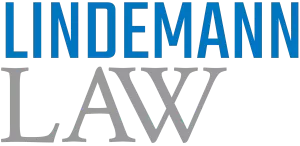- with readers working within the Metals & Mining industries
- within Media, Telecoms, IT and Entertainment topic(s)
Since the financial crisis of 2007-2008 the world has seen a multitude of various regulatory initiatives, including a number of national and international projects aimed at fiscal transparency and fairness in taxation. Some of the best known of such initiatives, to name just a few, are the OECD Base Erosion and Profit Shifting (BEPS) Action Plan published in October 2015 and the EU Directive 2011/16/EU on mandatory automatic exchange of information in the field of taxation in relation to reportable cross-border arrangements (DAC6 – please see our newsletter on this topic – learn more). These regulations address various aspects of cross-border transactions. In this newsletter we focus on the question of using bilateral treaties for the avoidance of double taxation.
Is it still possible to achieve tax efficiency in cross-border corporate structures in the modern world? It should be, provided the structure has a genuine commercial purpose. Bilateral double taxation treaties allow to reduce or eliminate double taxation on dividends, interest, royalties and other income to stimulate investments. However, all these benefits may not be available if a structure lacks economic substance and is used exclusively to minimize tax.
1. What is treaty abuse?
Bilateral tax treaties are generally signed to avoid harmful double taxation which hinders trade and investments. However, the same treaties have been widely used for so-called "treaty abuse" and "treaty shopping".
Treaty abuse refers to a situation where a person formally complies with the wording of provisions of an applicable tax treaty but tries to obtain benefits beyond the rational of these provisions. Treaty shopping is an arrangement where a person indirectly benefits from provisions of a double tax treaty between two countries without being a tax resident of either of these countries. In both cases a tax treaty is used for purposes for which it was not intended.
2. Are there any rules against treaty abuse?
Various countries have tried to address treaty abuse in various ways. Some countries have specific anti-abuse rules which look at the legal nature, ownership and activities of a person who wants to claim a benefit under a tax treaty concluded by such countries. Another approach is general anti-abuse rules where the main consideration is the purpose of transactions or arrangements. If the purposes is only tax-driven, treaty benefits may be denied.
The latest international strategy to deal with treaty abuses is the OECD BEPS Action Plan. It contains Action 6 – Prevention of tax treaty abuse – which sets a minimum standard for dealing with treaty shopping.
3. What is the BEPS minimum standard?
The minimum standard requires jurisdictions to include two components into their double taxation treaties:
- An express statement that the intention of the parties to a tax treaty is to eliminate double taxation without creating opportunities for non-taxation or reduced taxation through tax avoidance or evasion; and
- One of the three methods of addressing treaty shopping (the principle purpose test (PPT) and a detailed limitation of benefits (LOB) rule; PPT alone or detailed LOB rule with a mechanism to deal with conduit arrangements).
To facilitate the implementation of the minimum standard, the jurisdictions which have committed to implement the BEPS have signed the so-called Multilateral Instrument (MLI), a multi-lateral agreement which allows to modify the existing bilateral tax treaties.
4. How does PPT work?
The PPT is a form of a general anti-abuse rule which focuses on the rational of a specific transaction or arrangement. Its main idea is that treaty benefits should be denied if one of the principle reasons for a transaction or an arrangement is to obtain a tax benefit under the treaty. Generally, it gives a legal basis to challenge granting a treaty benefit in situations where treaty abuse is not captured by more specific provisions.
5. How is Switzerland dealing with treaty abuse?
Switzerland signed the MLI in 2017 and is implementing the OECD minimum standard through the inclusion in its bilateral tax treaties of the preamble statement and the PPT. The MLI entered into force for Switzerland on 1 December 2019. Switzerland is now negotiating with its treaty partners to insert the minimum standard, including the PPT rule, into the relevant effective treaties. The minimum standard will also be now included into new treaties concluded by Switzerland and into revised treaties. For example, the tax treaties with Cyprus, Malta, the Netherlands, and the UK have already been revised and now include the PPT rule.
6. What was before BEPS?
Before BEPS, Switzerland mainly applied unilateral measures against the unjustified use of tax treaties. For these purposes the Swiss Federal Tax Administration issued several circular letters (KS 1962, KS 1999, and KS 2010) which contain detailed explanations of the Swiss domestic anti-abuse rules. These measures continue to apply to situations not covered by anti-abuse provisions of a relevant tax treaty.
The circular letters describe situations when a claim of treaty relief is deemed as clearly unjustified, in particular:
- Anyone who takes up residence in Switzerland only for appearance's sake is not entitled to tax relief; the payment of Swiss taxes does not in itself establish residence for tax purposes.
- A person who is resident in Switzerland for tax purposes but has no or only a limited right to use the assets that generate the income in question may not claim tax relief for them, even if he pays Swiss taxes on the income or proves that the actual beneficiary could claim an equivalent tax relief from the source state for other reasons.
In addition, the circulars provide guidance on when tax relief claims may be viewed as treaty shopping. Firstly, these are the cases when treaty-eligible income substantially passes through persons domiciled in Switzerland to persons not entitled to treaty benefits. This may include payments of interest, license fees, advertising fees, etc. Secondly, a treaty abuse may also exist if the income benefiting from a treaty relief is accumulated by a Swiss corporation in which persons not entitled to treaty benefits have a substantial direct or indirect interest. Persons with substantial interest may include shareholders and third parties who, individually or collectively, have a direct or indirect legal or factual possibility of benefiting from the tax advantages claimed by the company.
7. What does this mean in practice?
As PPT rule and other anti-abuse provisions in tax treaties are becoming applicable to an increased number of treaties, the risks are rising of certain structures being challenged as abusive and of denying treaty benefits as a result. This may be true, in particular, for holding, financing or licensing structures. For structures set up some time ago, it may be necessary to assess their sustainability based on the changing rules. Similarly, the new anti-abuse rules should be considered for any set-up of new cross-border structures.
A set-up of a company in any particular jurisdiction should always have genuine non-tax business rational supported by the relevant business model and sufficient operational and economic substance.
8. When is there enough substance?
Substance, or economic and operational presence, in a particular jurisdiction should be adequate to the activity of the relevant company, its functions in the group and risks it is supposed to bear. This needs to be assessed based on the specific circumstances of each case. In addition, different countries may have different specific requirements, but the general guidelines normally include the following:
- Engagement of local directors;
- Presence of directors and staff with adequate qualifications and experience;
- Availability of suitable premises;
- Adequate expenses on employees and office;
- Contractual agreements with related parties which make commercial sense and have persuasive non-tax business rational;
- Benefits of the structure other than tax optimisation (such as consolidation of assets, synergies, economy of scale, reduction of costs, etc.)
- Adequate financing structure (e.g. no excessive debt).
The content of this article is intended to provide a general guide to the subject matter. Specialist advice should be sought about your specific circumstances.



